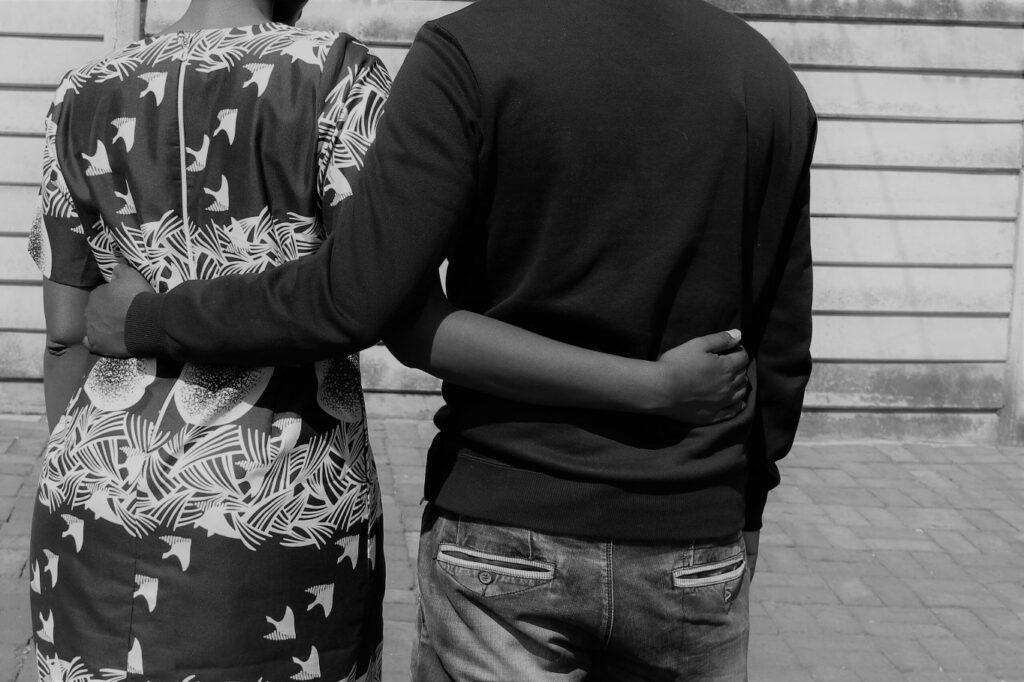Key Takeaways
- Many Shona traditional stories are lost as elders pass away before sharing them.
- Some Shona families strictly forbid same-totem marriages.
- Others accept same-totem marriages, especially when guided by personal beliefs like Christianity.
- Not all Shona people know their true totem, which can cause confusion or distortions in the system.
1. Losing our stories
My grandmother is over a hundred years old. Now too old to live alone, she lives with my mother. I pay her a visit one Sunday afternoon. We spread a reed mat (rukukwe) outside the house and sit while watching two toddlers as they play.

I strike up a conversation about clan poems, trying to find out how much she remembers. She responds, bringing up a totally different matter altogether. Her hearing is now very poor, and conversing with her requires a great deal of patience. I repeat my question, this time with my voice so loud that it draws the attention of the toddlers.
She tells me she remembers some of the poems and that she used to recite different poems for different occasions. Sometimes she didn’t have to recite the whole poem but just a few praise words from the poem. As I try to probe further, I realise she no longer has any interest in the conversation.
My mother joins us and tells me ambuya (grandmother) can no longer have conversations that stretch for long. She tires quickly and can no longer concentrate for a prolonged period due to old age. Sadly I have to leave it at that.
I can only imagine how much we have lost because our stories were not always written down. So I‘m sure you can imagine the difficulties that historians have encountered just to put together all that we know today.
Check out my MUTUPO LIST which is based on ZimbOriginal’s mutupo survey
GOOD NEWS! There are zero data charges for ECONET users when reading ZimbOriginal.
2. Same-totem love: A forbidden bond
While I was in college, I made friends with a girl named Gloria. After graduation, she met Jonathan and the two decided to get married after dating for a couple of years. Gloria went to introduce Jonathan to her tete (aunt), excited and so sure she would be delighted. True enough; tete was proud that Gloria had found a decent young man full of promise.
As is the norm in Shona culture, tete wanted to know about Jonathan’s family. What she was told however got her worried. Jonathan was of the same totem as Gloria – the Shava totem. She however assured Gloria that it was not a big problem because while they shared the same totem, they had different praise-names. This meant they were from different sub-clans.

When the news got to Gloria’s father, he would have none of it. He declared that he would not accept any roora (brideprice) from Jonathan. According to Gloria’s father, the two were related regardless of having different praise names. Gloria however was adamant; she was going to get married to Jonathan even without her father’s blessing.
Then her father took the matter further, making it clear that if Gloria was to continue her relationship with Jonathan, he would disown her. Gloria was unmoved and also vowed that she would not give up her relationship with Jonathan.
The two went ahead and started a life together as husband and wife despite Jonathan not having paid any roora to Gloria’s family. They had two children who never got to meet their grandparents.
Less than five years into their ‘marriage,’ something unfortunate happened; Gloria was diagnosed with cancer. They reached out to her father, but he turned them away. He told them his Gloria had passed away years ago. Gloria later passed way without ever reconciling with her father.
I’m sure you can see that other people do not take the matter of totems lightly. To them, anyone who shares a totem is a relative.
3. Love over tradition: When Christianity overrides totems
Rumbidzai got married in 2019, to the delight of her parents. For a girl past the age of 30, they had worried that she might never get married. On the day of the ceremony, it was revealed that Rumbidzai was already pregnant.
After the groom-to-be’s family introduced themselves, there was a long moment of silence as people murmured and exchanged glances. It became obvious that something was amiss. Rumbidzai’s husband-to-be was not only of the same totem as her, but also the same praise name. The two were both of the Shava–Mwendamberi totem.
Rumbidzai’s family then took some time to discuss the matter. Some uncles said the two could not get married because they were essentially brother and sister. On the other hand, Rumbidzai’s mother said she saw no reason why the two could not marry.
She told them that she was a Christian and did not believe in any of those traditions. She also pointed out that any intervention was already too late because Rumbidzai was already expecting her first child.
To support Rumbidzai’s mother, her father also said that he saw no problem with the marriage.

The bride-to-be’s parents prevailed. It was agreed that the in-laws would pay a white beast known as chekaukama. When the groom-to-be’s family indicated that they would not be able to find such a beast, a fee was paid to make up for failing to provide a white beast.
The marriage ceremony was concluded and Rumbidzai celebrated. However there was a great deal of division among members of the family. To some, Rumbidzai had married her brother.
4. Not everyone knows their true totem
In Ukama| Use these 5 rules to get your Shona family vocabulary right, I explored the kinship structure of the Shona. In Shona society, a person’s descent is traced through the paternal line. This means both males and females belong to their father’s patrilineage (rudzi) and not their mother’s.
Only the males will continue to pass their family identity to their children. Because of this, a mother is considered to be a ‘non-relative,’ (mutorwa). This kinship structure means that one adopts the mutupo of the father.

Among the Shona, it is very important for one to know their mutupo, as it points to their ancestry. It is also believed that sometimes misfortune or bad luck is tied to one’s family. This belief results in people shunning the adoption of children. Families fear taking on generational issues, or having to deal with spirits they have no knowledge of.
It isn’t only adopted children who present the challenge of unknown totems. Where the father is unknown, a child will have no knowledge of their true clan. I suppose they will identify with their mother’s clan. This presents some form of distortion in the mutupo system.
The same applies where children are raised under the false impression that the men who raise them are their fathers. An example of this could be where the mother had an affair during the course of the marriage during which the child was born.
So while the expectation is that everyone knows their totem, some will never know what theirs is while others will never know that theirs isn’t the true one.
To sum it up; it is clear that the mutupo system has its shortcomings and irregularities yet it remains a cherished and integral part of Shona society.
My grandmother passed away on 19 October 2021 at an estimated age of 106. I sincerely hope she finally got the rest and peace that she so much yearned for in her final days of life.


Fascinating stories – and you are so right the oral history is passing away with our revered grandparents worldwide!
And I hope the written word will help a great deal in saving what’s left of it!
Thanks Lin for stopping by!
Regards,
Shungu
I am in awe of the work you are doing. It helps keep a part of ourselves, our culture alive ironically I am saddened that the delivery is in English. Haisi mhosva yemhunhu. Ndiwo mutauro unoita kuti tese tinzwanane asi padiki padiki tirikurasikirwa nemutauro wedu. I am aware that even my comment is full of irony but it is what it is. Keep up the good work.
Thank you Yullittah.
I also work on Shona projects. Check out my learning resources, ZimbOriginal Learn, and this podcast on African Languages that I contribute to.
Cheers